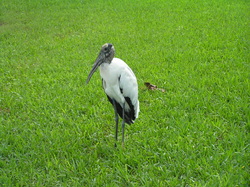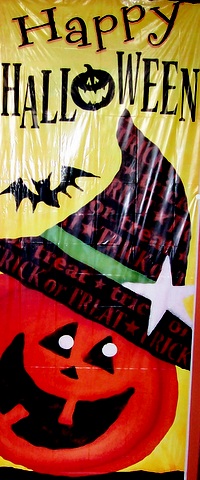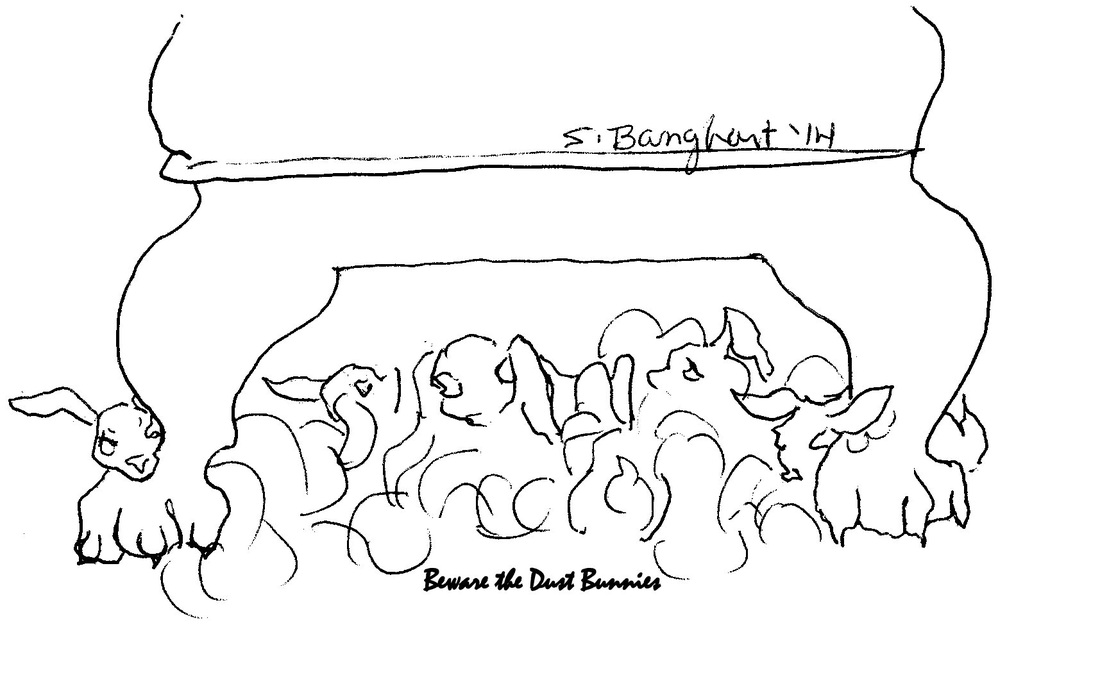|
NaNoWriMo starts Sunday, so this is prep time for all you people itching to start a novel. The Young Writer's Program offers a novel workbook, author pep talks and venues to connect to other teen writers.
NaNo launched in 1999 and last year 325,142 participated. Since it's beginning over 250 NaNo novels have been published, including Rainbow Rowell's Fangirl and Marissa Meyer's Cinder. Here's how it works. You go to their website, fill out a profile, hang out with other writers and commit to trying to write 50,000 words in a month. At the end of November, you stop. Not everybody makes the goal, so don't feel bad if you don't. There are badges that reward your best efforts. Display them with pride! Fifty thousand words is a lot to write in a month. The great thing is, no one expects them to be brilliant. You just write the story straight from your head. It will probably be a mess. Like most first drafts, it might make you wince when you read it. But it might also be the beginning of a good book. NaNoWriMo is a fast, fun way to prove you have a novel in you. It doesn't guarantee it will be a novel worth publishing. The value of the words you write depend on you learning to write them well. So if you start NaNo as a beginning writer, don't expect to create a blockbuster novel. Use it as a learning experience. Most authors start by writing books no one will ever read. Why not do that with a legion of new writer friends? And for experienced writers who are using NaNo to bring a third or fourth book into the world, who knows? It could be the next Eleanor and Park.  Where's your favorite place to create? In your room at an easel or desk, on your bed or the floor? On a comfortable limb in a climbing tree, or underneath it, a sturdy trunk at your back? To your left is the desk where I write. I didn't use to be this messy. When my work was drawing and painting, my studio was tidied at the end of each day. Before stories took control of my life, dust bunnies didn't breed under my furniture and weeds didn't rule my yard. Now it takes a heroic effort to abandon my writing and focus on house or garden. And often, as I'm herding dust bunnies, the characters in my head demand I leave the dust and pick up a notebook. If I'm away from my computer for too long, I start feeling twitchy. When I was a child, I'd create anywhere. Give me a crayon or pencil and scrap of paper, I'd draw and draw and draw. Busy restaurants, parades, grown-up parties, I didn't notice. I was one with my art. Then as I neared teenagerdom, I craved privacy. I drew in my room, on the bed or floor. But now the whole house is mine. It relies on me to keep it safe from dust and grime. My yard hopes I'll protect it from weeds and strangling vines. My husband hopes I'll remember to feed him and wash his clothes. The dogs don't hope anything. They never let me forget them for one second of the day. I need my room at the back of the house where writing happens. Dogs are allowed but husband knows to tiptoe in the door and if my fingers are madly typing, he tiptoes out again. While the story streams from my mind to the keyboard, things pile up on my desk: books, manuscripts, notebooks, favorite birthday cards, photos of people I'd like to see more, and paper scraps where I jot important things. I've tried to fight the clutter. It returns within days. In fact, this post was meant to be about Spring cleaning. Alas, my desk still looks like the photo and it was taken weeks ago. Truth is, a clean desk isn't important. Claiming your space is. Wherever you live, respect your needs as an artist and writer. Find the place and conditions that work best for you. Make time in every day, hunker down in that space and create. And if someone is screaming at you to clean up your room, draw the dust bunnies first!  This week, I finished the third draft of my novel, the one I hoped to pass on to readers. But the pile of notes I jotted during that revision demand a fourth attempt. So I've outlined by chapter the additions and changes and next week, I'll attack Draft #4. Writing a book can seem like an endless project. When I've described the process to non-writer friends, they gawk at me and say things like, "Why would anyone go to all that trouble?" Which, believe me, I've asked myself a time or two. Even if your loved ones are supportive, they probably don't understand the passion (some would say madness) that leads us to toil for eons on a story. So, it's best to share writerly moments with people who can relate. The writers in my circle are always willing to lift their heads from their work to encourage and advise. And keep me grounded. Even if I can't see the end of this process, I trust their promise that it does have an end. Books on craft are also a comfort and fuel while I revise. They stimulate the brain and, I hope, affect the revision in a positive way. Recently, I read Donald Maass' The Fire in Fiction. Maass is the president of Donald Maass Literary Agency and the author of Writing the Breakout Novel. In the last chapter of The Fire in Fiction, he addresses what he feels is the lack in most people's writing. Maass writes: Where so many manuscripts go wrong is that, if they do not outright imitate, they at least do not go far enough in mining the author's experience for what is distinctive and personal. That was an eye-opening bit of wisdom. I've joined in discussions about bad writing practices in successful, sometimes award-winning books. We struggle to erase excess adverbs and adjectives, passive voice, telling, etc. from our manuscripts, then pick up the latest publishing darling and gasp at the undisciplined writing. It can be downright discouraging. Some might even see it as an excuse to ignore the experts' list of no-nos. Indeed, after reading truckloads of submissions in his career, Maass suggests the key to a good story is not following all the literary rules, but being as honestly unique as you can. Filter your story through the treasure of memories in your head. Make it a story only you can tell because only you know how you would experience it. I believe that's what agents and editors mean when they say they're looking for fresh voices. And as a reader, I agree with him. If I'm swept up in a story, I don't notice how it's written. I don't think Maass is saying we should stop improving our craft. The creative people I know never tire of learning new ways to improve their work. Writing a novel, for most of us, is a slow process. It requires patience and perseverance, qualities I hope to spend the rest of my life practicing. And next week as I revise, I'm reminded by Maass to leave my individual stamp on the story. Photo credit: David Banghart 2013  For the next few months, maybe longer, I'll be posting once a month and I celebrate the freedom to do this because . . . I don't have a book to promote! That's right. There are some positives to not having a book deal. At a local SCBWI event, writing coach, Joyce Sweeney, encouraged us nonpubs to embrace this time. Published authors in the room shared knowing glances and smirked. They remember their prebook days with fondness: no agent and publisher prodding you to do backflips and handstands to sell your book; no full calender of signings and school visits; no mad scramble to lure readers on blog, Facebook and Twitter. Joyce offered many sage morsels that day. I sat in a back corner, womanning the sign-in table, and though Joyce couldn't see me, twice her words struck like a bullet. First, she talked of focusing on your sweet spot as a writer. She said often new childrens' writers explore every avenue from picture book to young adult and that's helpful if you use it to find your strengths. Then, it's time to concentrate. If it's PBs, start cranking out stories like a factory. If it's middle grade or YA, write short stories and work your way up to novels. I've been writing for four and a half years and I've juggled PBs, MG and YA for almost the entire journey. I've always felt that my voice is better suited to MG and YA but the artist inside urged me to try PBs. I've been blessed to belong to the best PB group (in my biased opinion) in Florida, Rob Sanders' PB&J, Picture Books and Java. They are my writing family. Perhaps my attachment clouded my reasoning because from the beginning, I've heard: "Your voice is too old for PBs" (my words not there's. They were always much kinder.) So, Joyce's advice hit the target. I needed to quit struggling with PBs and focus on my novels for older children. A small part of me rejoiced, the sensible writer who fought the artist for my attention. A large part of me silently wailed at my inevitable resignation from PB&J. As I recovered from that shock, Joyce addressed branding and how not focusing on one genre can affect new writers. She cited a writer who had a pending deal on a MG novel. The interested agent (or editor, I can't remember which) Googled the writer and up pops a website featuring the author's self-illustrated PBs. The agent wasn't interested in representing PBs so she turned the novel down. Joyce continued, saying agents and publishers want to see an author committed to building devoted readership by producing consistent books. OUCH! I slunk down in my chair, feeling as if a path had cleared from Joyce to my seat and all eyes targeted me. My website is all over the place. I tried to focus it on writing but . . . well, look at it; there's a giant, clothed rabbit hosting the home page! And even though there's only one portfolio page, the art is what viewers notice. No one ever comments on the writing. So, guess who will be revamping their website? One day, I hope to have agents and publishers Googling my name and when they do, I want to be ready. Until then, I'm enjoying my freedom. Today, I don't have to worry about branding or book promoting. The Bible says there's a time for every season. Rejoice fellow nonpubs! This is our season of learning to write the best book we can. Since, I'm only posting once a month, I'm throwing everything I've got here. If you're in Florida, Tennessee or Missouri, please watch for events promoting Rob Sanders' debut PB, Cowboy Christmas. The launch party is Saturday, Nov. 3 at Inkwood Books in Tampa and you don't want to miss it. Rob's hired cowboy strummers and there's sure to be tasty refreshments. Happy Halloween everyone. Wishing you treats, no naughty tricks!  That's a rain tree in bloom. In another couple weeks the yellow blossoms will morph into papery rose-colored seed pods, followed by an invasion of rain tree, seed-loving insects called Jadera bugs or soapberry bugs. The rain trees' brilliant show is one more sign Florida's easing out of summer. But I digress. I should be writing about my mentorship. Correction. I should be working on the second hundred pages of my novel. I'd like to blame this lethargy on Monday. Truth is, I'm tiptoeing around my writer self, leery of undoing the flimsy bandaid that's holding her together. Caroline Leavitt responded to the first ninety pages of my book with constructive criticism and a dollop of praise. She asked questions that drove me deeper into the story, addressed weaknesses in the plot and undeveloped characters, and encouraged me to ask questions. I digested the review and a few days later I responded to Caroline with more questions and some clarifying notes about plot and character motivation. So far, so good. Sure, hearing I started the story too early (meaning chapters one and two were trash) hurt. But I was feeling challenged and motivated and the story was growing. Then, I got Caroline's response to my response. She liked some of the new plotlines and character development and she says this is a great story . . . at heart. Who doesn't want to hear their story's great? It's the caveat that worried me. That along with the rest of the comments that felt like they wiped out the other eight chapters I sent. It's amazing how fast the thrill of seeing ninety pages in print turns into the agony of imagining them shredded. I spent four days in a torrent, my brain spinning around and around the issues with no results. Yesterday, my brain shut down and I'm leaving it be. In the meantime, my story's stopped and I wonder, was this mentorship a mistake? Maybe I'm not ready for this level of criticism. I've only been writing for four years and my education's spotty. Maybe, I don't know enough to understand what Caroline's trying to teach me. Trusting someone you've only just met with your book is hard. No matter how much you respect the person who recommended them and how shiny their credentials. When they ask you to put aside your doubts and believe in their instincts, it feels like jumping without a parachute. If their advice conflicts with what you've learned, you need a super hero's courage to jump from the plane. I've never worn a cape. Right now, I'm hiding in the bowels of the aircraft where no one can find me. |
AuthorI write middle grade and young adult books with a magical twist, and I'm represented by the fabulous Leslie Zampetti at Open Book Literary. Writer Websites
Augusta Scattergood Maggie Stiefvater Rob Sanders Fred Koehler JC Kato Sarah Aronson Kelly Barnhill Linda Urban Kate DiCamillo Jacqueline Woodson Helpful Links SCBWI Agent Query Lorin Oberweger - Freelance Editor Search BlogArchives
May 2020
Categories
All
|




 RSS Feed
RSS Feed
